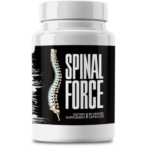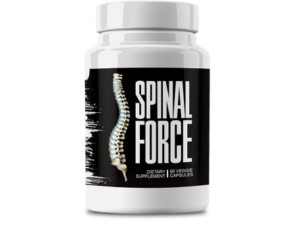This Village-Made Chinese Pain Reliever Eliminates Back And Joint Pain!
SI Back Pain vs. Sciatica: How to Tell the Difference

SI Back Pain vs. Sciatica: What's Really Causing Your Ache?
If you're reading this while shifting uncomfortably in your chair, you're not alone. Lower back pain plagues millions, but here's the twist - not all back pain is created equal. Two frequent culprits, sacroiliac (SI) joint pain and sciatica, often get mistaken for each other. While both can turn simple movements into painful challenges, they're fundamentally different beasts. Let's break them down so you can better understand what's really going on with your body.
SI Joint Pain: When Your Pelvis Throws a Tantrum
Picture this: your sacrum (that triangular bone at your spine's base) and pelvis meet at the SI joints. When these joints get irritated - maybe from an injury, pregnancy, or just wear-and-tear - they protest with pain. It typically feels like a persistent ache in your lower back, hips, or buttocks that turns sharp when you move wrong. Ever felt that stab when you stand up after sitting too long? That might be your SI joint complaining.
Sciatica: Your Nerve's Dramatic Cry for Help
Now imagine your sciatic nerve - the longest nerve in your body - getting pinched or irritated. Unlike SI joint pain that stays put, sciatica sends shooting pains down your leg like an electric current. You might also experience tingling, numbness, or weakness. That nagging pain that starts in your buttock and travels down to your calf when you sit? Classic sciatica move.
Spotting the Difference: Your Pain Detective Kit
- Pain Location: SI pain camps out in your lower back/pelvis, while sciatica takes a road trip down your leg.
- Pain Personality: SI pain is the dull, persistent neighbor; sciatica is the dramatic friend who shows up unannounced with sharp, burning pain.
- Movement Tells: SI pain hates stairs and standing; sciatica despises sitting and coughing.
Root Causes: Why Your Back is Rebelling
Understanding why you're hurting is half the battle. Let's play medical detective with these common triggers.
Why Your SI Joint Might Be Angry
- Oops Moments: That fall or car accident last month? Your SI joints remember.
- Pregnancy Changes: Thank relaxin hormones for loosening things up a bit too much.
- Arthritis: The slow creep of joint wear that catches up with all of us eventually.
Sciatica's Usual Suspects
- Slipped Disc: When your spinal cushion decides to bulge where it shouldn't.
- Spinal Stenosis: Your spinal canal narrowing with age, crowding nerves.
- Piriformis Problems: That deep butt muscle cramping your sciatic nerve's style.
Shared Risk Factors You Can Actually Change
Both conditions whisper warnings through these common lifestyle factors:
- Too much couch time (we're looking at you, Netflix marathons)
- Extra pounds adding stress to your frame
- That terrible office chair you keep meaning to replace
- Lifting heavy boxes like you're still 20
Symptom Showdown: Decoding Your Body's Signals
Your body speaks through symptoms - here's how to interpret them.
SI Joint Pain's Calling Cards
- Pain that won't wander far from your lower back/hip area
- Morning stiffness that makes you move like a rusty tin man
- Discomfort that builds the longer you're on your feet
Sciatica's Signature Moves
- Lightning bolt pains shooting down one leg
- That "pins and needles" feeling in your foot
- Pain that laughs at your attempts to sit comfortably
When Symptoms Play Hide and Seek
If your pain can't decide whether to stay or travel, you might be dealing with both issues. This is when a healthcare provider can perform simple tests (like having you lie on your back and raise your leg) to crack the case.
Getting to the Bottom of Your Pain
Proper diagnosis means targeted treatment - here's what to expect.
SI Joint Investigation
- Hands-On Exam: Your doctor might gently press around your pelvis, asking "Does this hurt?" (Spoiler: It probably will.)
- Diagnostic Injection: If numbing the joint makes your pain vanish, we've found our culprit.
Sciatica Sleuthing
- MRI/CT Scans: High-tech peeks at what's irritating your nerve
- Nerve Tests: Measuring how well your sciatic nerve conducts electricity
Why Getting It Right Matters
Treating sciatica when you have SI joint dysfunction is like putting gas in a diesel car - it just won't work. Accurate diagnosis saves you time, money, and frustration.
Road to Relief: Treatment Options That Work
The good news? Most people find relief without surgery. Here's how.
Calming Angry SI Joints
- Physical Therapy: Targeted exercises to stabilize those cranky joints
- Joint Injections: Anti-inflammatory medicine right where it hurts
- SI Belt: A supportive hug for your pelvis
Soothing Sciatica
- Medication: NSAIDs to take the edge off nerve irritation
- Strategic Stretching: Especially for those tight piriformis muscles
- Heat/Ice Rotation: 20 minutes on, 20 minutes off - your new best friends
When Surgery Enters the Chat
For the small percentage who need it, options include:
- SI joint fusion (basically encouraging the bones to grow together)
- Discectomy (removing the bit of disc bullying your nerve)
Keeping the Pain at Bay: Prevention Strategies
An ounce of prevention beats a pound of pain meds.
SI Joint Strengthening
- Pelvic tilts (your spine's favorite subtle movement)
- Clamshells (no actual shells required)
- Bridges (the exercise kind, not the architectural kind)
Sciatica Prevention
- Maintaining a weight your spine can comfortably support
- Lifting with your legs (yes, just like they taught you in gym class)
- Regular movement breaks if you sit all day
Daily Habits for Happy Joints
- Alternate between sitting and standing
- Invest in shoes that don't punish your body
- Listen to your body's early warning signals
When to Call in the Professionals
Some red flags mean it's time to skip Dr. Google and see a real doctor.
Emergency Signals
- Sudden, severe pain that came out of nowhere
- Bathroom accidents you can't explain (this is serious!)
- Leg weakness that's getting progressively worse
Time to Make the Appointment
If your pain has overstayed its welcome (more than a few weeks) or is disrupting your daily life, it's time for professional help.
Questions Worth Asking
- "Could this be SI joint pain or sciatica?" (Now you'll understand the answer!)
- "What conservative treatments should we try first?"
- "What movements should I avoid or embrace?"
Wrapping It Up: Your Pain Relief Roadmap
Key Differences to Remember
- SI pain stays local; sciatica travels
- SI issues stem from joints; sciatica from nerve irritation
- Different causes demand different treatments
Final Word of Hope
Whether it's your SI joint acting up or your sciatic nerve throwing fits, understanding your pain is the first step toward relief. Most people improve with time and proper care. Still unsure? A healthcare provider can help create a personalized plan to get you moving comfortably again. After all, life's too short to let back pain call the shots.








